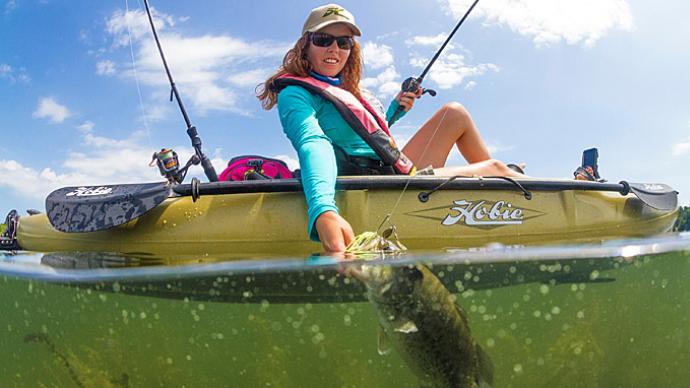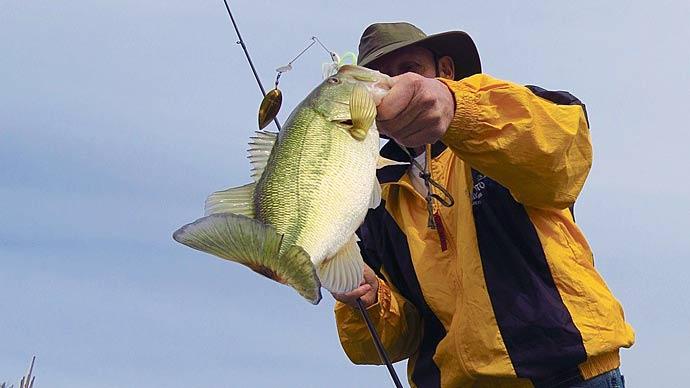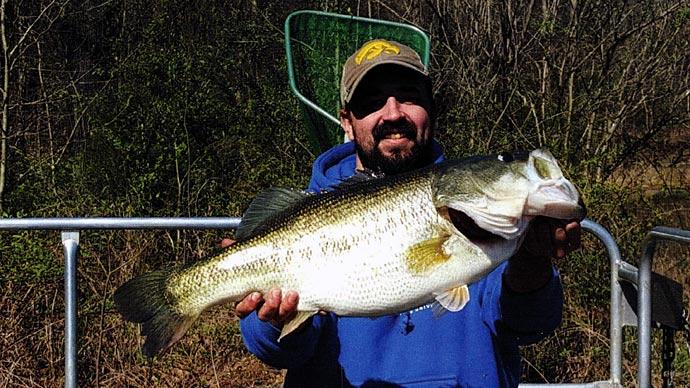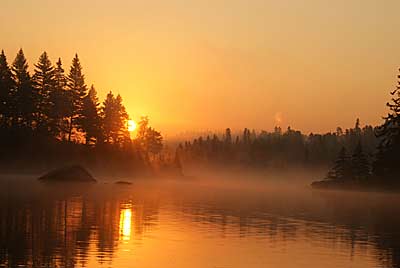
In the film, “300,” an emissary from King Xerxes threatens King Leonidas, his queen, and his country.
King Leonidas mulls his options, visually consults his queen, and then roars, “This is Sparta,” as he kicks the emissary into a pit.
If King Leonidas were to watch me fish, he might smile and nod slightly, for I fish like a Spartan, not because I fancy sleeping on rocks and spitting out mosquitoes as I carry a canoe through the Canadian bush, but because fishing with less can mean catching more. I have spent months fishing the bush of northwestern Ontario, always close to the trans-Canada railroad line because the railroad company stocked track-adjacent lakes with smallmouth bass to feed and entertain the railroad workers.
Those bass have grown and multiplied. An average fish is 16 inches. You would likely catch hundreds of 16 to 21-inch bass before you even caught a dink, as small fish are that rare. What’s not rare are hundred-fish days.
It’s not just the fishing that’s otherworldly. One morning on one lake, I rose to a wolf song. I could hear the pups yipping, doing their best to howl. A kingfisher circled my island. Geese flew overhead. My partner and I crossed the lake to a long island ringed by reefs. It didn't just look like it'd hold bass; It held bass. I caught bass on my first five casts. Then I saw an oversized beaver crossing the strait between the island and shore. Puzzled, we paddled closer, squinting as we faced the rising Sun.
“That’s not a beaver. That’s a bear,” I whispered.
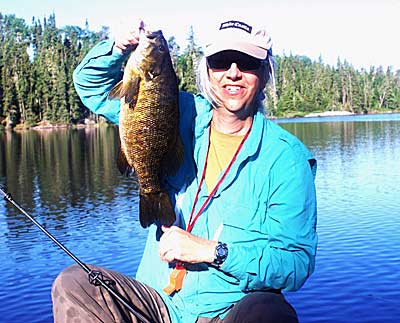
I caught 157 bass that day. The bass are that abundant, and because they haven't been educated from being caught again and again, they strike with abandon. However, you do have to fish differently than you do a lake with a boat ramp because they are not acclimated to people noise and people paraphernalia. They don’t hear boat motors every day. They don’t see fishing line and lures every day. So, I fish quietly and lightly, minimizing noise and using light line. I fish from a canoe, so I attach felt to my gunnels where I lay my paddle. I set fishing rods gently into the boat. The density of water means that it transmits sound much better than air, so I fish quietly.
I don’t bellow, “This is Spartan!”
I whisper it.
I also stay low in the canoe, often fishing on my knees, to be as stealthy as possible for these wild, wary fish. I use 6-pound mono, which is plenty to land thick bass in rocky lakes with few weeds. I make long casts to maintain maximum distance between wary wilderness fish and me. Pinpoint casting is rewarded. My best lure is an F13 Rapala in Gold Fluorescent Red. 90% of the time, they’ll hit on the first, second, or third twitch. My second-best producer is a Mepps size 3 with a brass blade and undressed hook.
Instead of dropping $300 a day to fish a 100-bass day at a lake in Mexico, I dropped three grand into my Kevlar canoe. I'm 66, and its 32-pound weight means I can still reach these lakes. I find them using the Ontario website Fish ON-line, which lets you search for smallie lakes.
When my father turned 81, reaching these lakes was beyond iffy for him. I didn’t wonder if he’d fall again, but when. So, I purchased weeks in cabins with boardwalks down to the docks. I’d heard fishers tout the quality of the fishing, but it was nothing like the lakes down the logging roads.
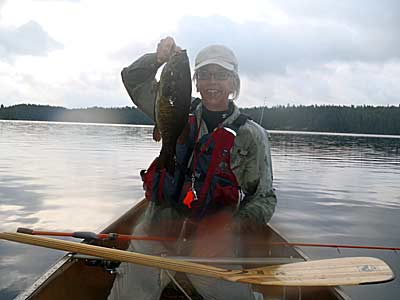
I use Google Earth to scout the lakes I find on Fish ON-line. Don’t just pick one lake. Have back-ups.
Then I use a four-wheel drive vehicle to drive those roads. Wear rubber boots on your drive because you will encounter water, and it's prudent to walk through the water to determine its depth and, more importantly, whether there's rock or mud under that water. An inch or two of mud is no problem, but if there's mud under that mud, consider that a dead end and aim for one of your backup lakes. When crossing moving water, aim the car slightly downstream. A winch and shovel are wise. Two four-wheel drive vehicles are better than one and carry a tow strap if you have two. Drive slowly, too, for a broken axle is an expensive problem.
It's Spartan fishing, so you don't need a fish finder. However, don't underestimate the lures you'll need. Nearly every Canadian lake teems with toothy pike. You will lose lures, especially to the smaller pike with their puppy teeth. However, nearly every trip will also mean a 40" or bigger pike beside your boat. I release them in the water for their sake and mine.
Sure, you can have 100-bass days in Mexico, and there's no barkeeper to make you margaritas at the end of an Ontario smallmouth day. But at the end of a day of paddling miles and catching scores of railroad bass, you won’t need liquor and a soft bed to sleep well. Instead, a Therm-a-Rest sleeping pad and a loon lullaby will suffice.


